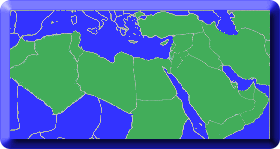
Topics in Middle Eastern and North African Economies
Document Type
Article
Publication Date
5-1-2016
Journal Title
Topics in Middle Eastern and North African Economies
Volume
18
Issue
1
Publisher
Middle East Economic Association and Loyola University Chicago
Abstract
The main goal of this paper is to evaluate the impact of governance on economic growth using a group of 188 countries. Although our main focus is on the 21 Middle Eastern and North African (MENA) countries, our findings can be applied to the other countries as well. We create a “composite governance index” (CGI) that summarizes the existing six governance measurements in the Worldwide Governance Indicators (WGI), using the Principal Components Analysis (PCA) method. The first principal component derived from the WGIs explains as much as 81% of the variations in the original six WGI measurements. We then use PPP adjusted constant per capita GDP data to find that per capita GDP would rise by about 2% if the CGI increases by one unit. Using the Rule of 70, the marginal estimate further indicates a mere five-unit improvement in CGI would double the country’s per capita GDP in seven years. Nonetheless, the effect of improvement of governance cannot account for the higher than expected per capita GDP in most of the oil rich MENA countries. In other words, the majority of the MENA countries have achieved fragile levels of economic growth that does not depend on sound governance.
ISSN
2334-282X
Recommended Citation
Emara, Noha and Chiu, And I-Ming, "The impact of governance on economic growth: The Case of Middle Eastwen and North African Countries". Topics in Middle Eastern and North African Economies, electronic journal, 18, 1, Middle East Economic Association and Loyola University Chicago, 2016, http://www.luc.edu/orgs/meea/
Creative Commons License

This work is licensed under a Creative Commons Attribution-Noncommercial-No Derivative Works 3.0 License.
Copyright Statement
© 2016 The Authors



Comments
Presentation of the articles in the Topics in Middle Eastern and North African Economies was made possible by a limited license granted to Loyola University Chicago and Middle East Economics Association from the authors who have retained all copyrights in the articles.